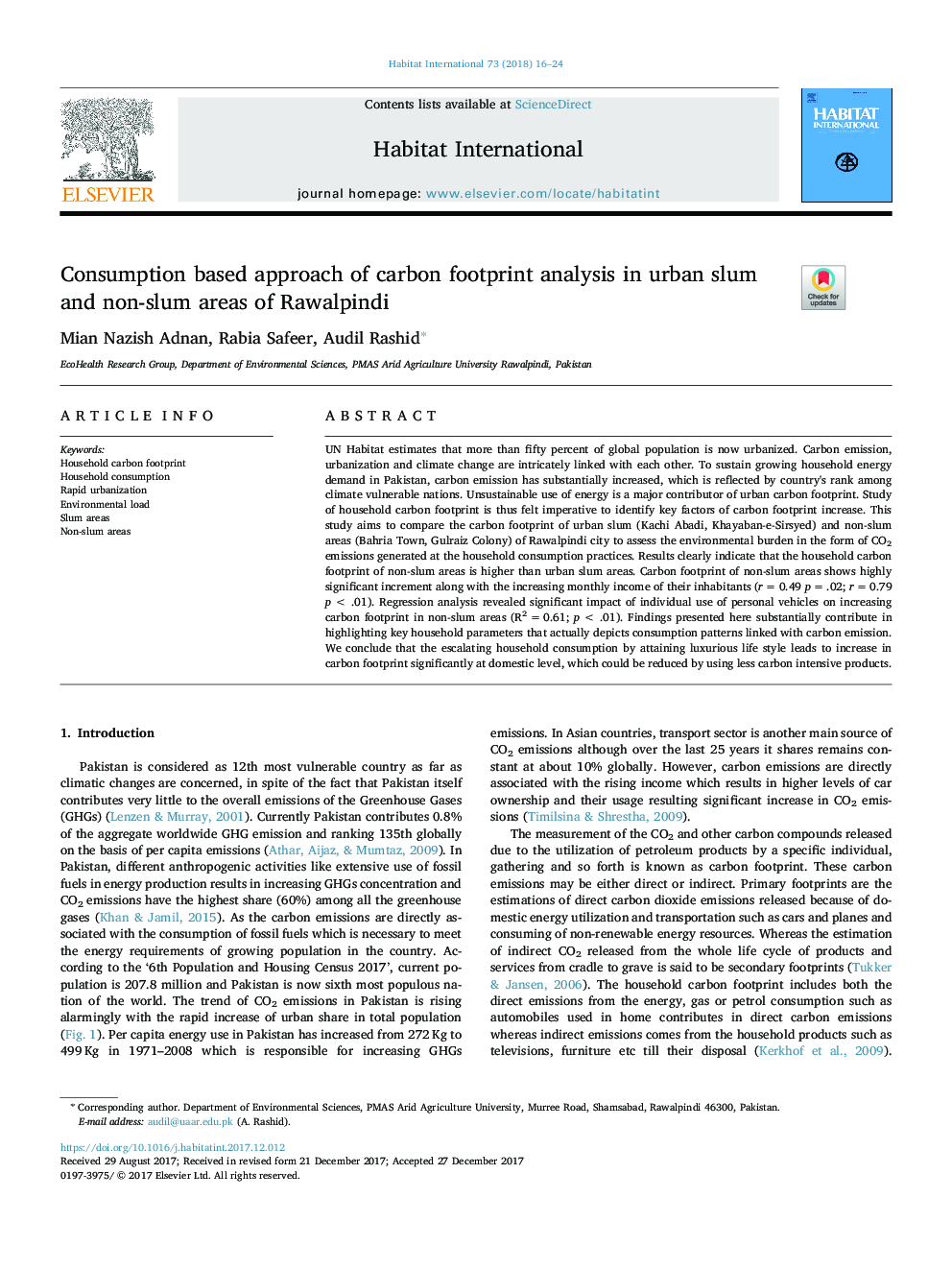| کد مقاله | کد نشریه | سال انتشار | مقاله انگلیسی | نسخه تمام متن |
|---|---|---|---|---|
| 7455144 | 1484471 | 2018 | 9 صفحه PDF | دانلود رایگان |
عنوان انگلیسی مقاله ISI
Consumption based approach of carbon footprint analysis in urban slum and non-slum areas of Rawalpindi
ترجمه فارسی عنوان
رویکرد مبتنی بر مصرف تجزیه و تحلیل ردیابی کربن در مناطق شهری و مناطق غیر روستایی راولپندی
دانلود مقاله + سفارش ترجمه
دانلود مقاله ISI انگلیسی
رایگان برای ایرانیان
کلمات کلیدی
رد پای کربن خانگی، مصرف خانگی، شهرک سازی سریع، بار محیط زیست، مناطق لانه، مناطق غیر لانه،
موضوعات مرتبط
علوم انسانی و اجتماعی
علوم اجتماعی
توسعه
چکیده انگلیسی
UN Habitat estimates that more than fifty percent of global population is now urbanized. Carbon emission, urbanization and climate change are intricately linked with each other. To sustain growing household energy demand in Pakistan, carbon emission has substantially increased, which is reflected by country's rank among climate vulnerable nations. Unsustainable use of energy is a major contributor of urban carbon footprint. Study of household carbon footprint is thus felt imperative to identify key factors of carbon footprint increase. This study aims to compare the carbon footprint of urban slum (Kachi Abadi, Khayaban-e-Sirsyed) and non-slum areas (Bahria Town, Gulraiz Colony) of Rawalpindi city to assess the environmental burden in the form of CO2 emissions generated at the household consumption practices. Results clearly indicate that the household carbon footprint of non-slum areas is higher than urban slum areas. Carbon footprint of non-slum areas shows highly significant increment along with the increasing monthly income of their inhabitants (râ¯=â¯0.49 pâ¯=â¯.02; râ¯=â¯0.79 pâ¯<â¯.01). Regression analysis revealed significant impact of individual use of personal vehicles on increasing carbon footprint in non-slum areas (R2â¯=â¯0.61; pâ¯<â¯.01). Findings presented here substantially contribute in highlighting key household parameters that actually depicts consumption patterns linked with carbon emission. We conclude that the escalating household consumption by attaining luxurious life style leads to increase in carbon footprint significantly at domestic level, which could be reduced by using less carbon intensive products.
ناشر
Database: Elsevier - ScienceDirect (ساینس دایرکت)
Journal: Habitat International - Volume 73, March 2018, Pages 16-24
Journal: Habitat International - Volume 73, March 2018, Pages 16-24
نویسندگان
Mian Nazish Adnan, Rabia Safeer, Audil Rashid,
